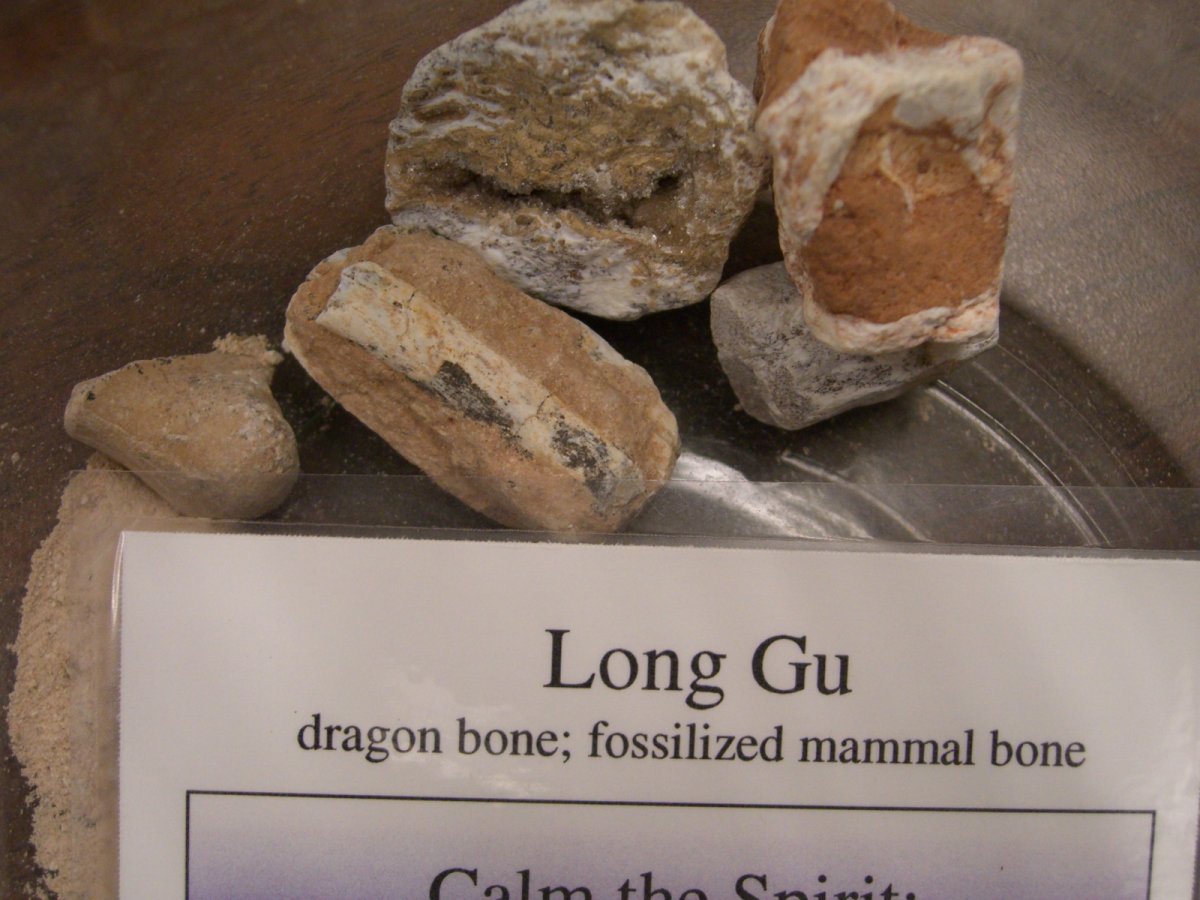Long Gu

  | Long Gu in TCM:Explore the properties of Long Gu according to Chinese
Nutrition and Traditional Chinese Medicine (TCM):
Factoids:
English Name: dragon bone (fossil), fossilized animal bone
Pharmacuetical Name: Os Draconis
Properties: sweet, astringent, cool
Temperature: cool
Channels: HT, KD, LV
Flavors: astringent, sweet
Alternate Forms:
- Long Gu - fossilized animal bones, the most commonly used form in Chinese herbal medicine.
- sheng- to anchor spirit and yang
- duan- astringent functions and for sores
- Long Chi (Dens Draconis) fossilized animal's teeth - HT, LV; astringent, sweet, and cool. It calms spirit and most effective for palpitations with anxiety, insomnia, mania, dread disturbed sleep, andneurasthenia. Dosage is 9-15g
Actions / Indications:
- Anchors and calms spirit (restlessness, insomnia,
emotional distress, palpitations with anxiety, seizures or mani-withdrawal
due to agitated heart shen, stronger than Mu Li to calm shen)
- Calms LV; anchors floating yang (restlessness, irritability,
dizziness, vertigo, blurred vision)
- Prevents leakage of fluids (spontaneous sweating,
night sweats, chronic diarrhea, dysenteric disorder, prolapse of anus,
spermatorrhea, nocturnal emissions, urinary incontinence, vaginal discharge,
uterine bleeding, fluid loss due to deficiency)
- Generates Flesh; treats sores (sores, eczema, rash,
chronic non-healing sores and ulcerations; used topically)
Special Notes:
- (cooking: crush and cook 20-30 minutes first)
- Long Gu is fossilized animal bones, and Long Chi is fossilized animal teeth. They both pacify shen greatly, but Long Gu is astringent and stops spermatorrhea, vaginal discharge, uterine bleeding, and sweating.
Long Chi has a stronger function to calm shen. Long Gu is used to treat non-healing ulcers and sores.
- For restlessness or crying in babies or children during the night combine Long Chi with Bai Shao, Mai Men Dong, Da Huang, and Sheng Ma.
Contraindications: - (cc: damp heat or externally contracted disorders)
Disclaimer: In accordance with our terms of service, by using this web site you agree that none of the information found on this web site constitutes medical advice. You should always consult your doctor before trying any particular food or herbal remedy to treat disease.
Folk remedies presented on this site are designed to address specifc TCM diagnoses, and are not one-size-fits-all. If you would like to learn more about Traditional Chinese Medicine (TCM) and how it relates to Chinese Nutrition, you can book in a free call with a licensed professional. There is no obligation to purchase.
[CLICK HERE for your free INITIAL CONSULTATION] |

